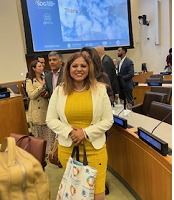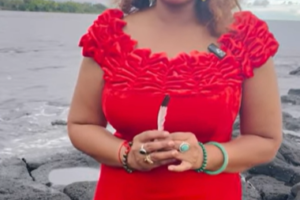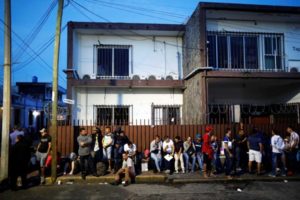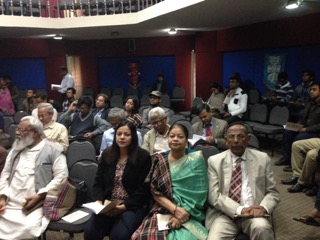Researchers in Hong Kong on Monday reported what appears to be the first confirmed case of Covid-19 reinfection, a 33-year-old man who was first infected by SARS-CoV-2 in late March and then, four and a half months later, seemingly contracted the virus again while traveling in Europe.
The case raises questions about the durability of immune protection from the coronavirus. But it was also met with caution by other scientists, who questioned the extent to which the case pointed to broader concerns about reinfection.
There have been scattered reports of cases of Covid-19 reinfection. Those reports, though, have been based on anecdotal evidence and largely attributed to flaws in testing.
But in this case, researchers at the University of Hong Kong sequenced the virus from the patient’s two infections and found that they did not match, indicating the second infection was not tied to the first. There was a difference of 24 nucleotides — the “letters” that make up the virus’ RNA — between the two infections.
“This is the world’s first documentation of a patient who recovered from Covid-19 but got another episode of Covid-19 afterwards,” the researchers said in a statement.
Experts cautioned that this patient’s case could be an outlier among the tens of millions of cases around the world and that immune protection may generally last longer than just a few months. They said that ongoing studies tracking patients who had recovered from Covid-19 would help reach more definitive conclusions. They also noted that the man’s second case was milder than his first, indicating that his immune system was providing some level of protection, even if it could not prevent the infection entirely.
“There’s been more than 24 million cases reported to date,” Maria Van Kerkhove, a coronavirus expert at the World Health Organization, said at a briefing Monday, when asked about the Hong Kong report. “And we need to look at something like this at a population level.”
The question of how long someone is protected from Covid-19 after being infected and recovering looms large.
Studies are increasingly finding that most people who recover from the illness mount a robust immune response involving both antibodies (molecules that can block the virus from infecting cells again) and T cells (which can help clear the virus). This has suggested that people would be protected from another case for some amount of time.
But based on what happens with other coronaviruses, experts knew that immunity to SARS-CoV-2 would not last forever. People generally become susceptible again to the coronaviruses that cause the common cold after a year or even less, while protection against SARS-1 and MERS appears to last for a few years.
“What we are learning about infection is that people do develop an immune response, and what is not completely clear yet is how strong that immune response is and for how long that immune response lasts,” Van Kerkhove said. She added she was still reviewing the Hong Kong case.
The strength and durability of the immune response is also a crucial factor in how long vaccines will be effective for, and for how often people might need a booster dose.
In the Hong Kong case, the man had traveled to Spain and returned to Hong Kong via the United Kingdom. A saliva sample was taken upon arrival in Hong Kong as part of a screening protocol and tested positive for SARS-CoV-2 on Aug. 15.
During his second infection, the man did not have any symptoms. Some patients go through their course of Covid-19 without showing symptoms, but researchers have also hypothesized that secondary cases of the coronavirus will generally be milder than the first. Even if immune systems can’t stop the virus from infecting cells, they might still rally some level of response that keeps us from getting sicker. During his first case, the patient had classic Covid-19 symptoms of cough, fever, sore throat, and headache.
Experts said it was also important to consider the immune response the patient generated after his first infection. While most people seem to mount a solid response, there has been indication that some people do not produce neutralizing antibodies — those that can block the virus from infecting cells — at very high levels, for unclear reasons.
“The fact that somebody may get reinfected is not surprising,” said Malik Peiris, a virologist at the University of Hong Kong, who is not an author of the paper describing the reinfection but is familiar with the case. “But the reinfection didn’t cause disease, so that’s the first point. And the second thing is that it is important to know whether the patient mounted a neutralizing antibody response to the first infection or not. Because the vast majority of patients in our experience do mount a good neutralizing antibody response. So is this person an outlier or is he likely to be the average person infected?”
Even if the Hong Kong case is an outlier, it points to a few implications: For one, people who have recovered from Covid-19 should also be vaccinated, the researchers said. And they should continue following precautions like wearing a mask and physical distancing.






















